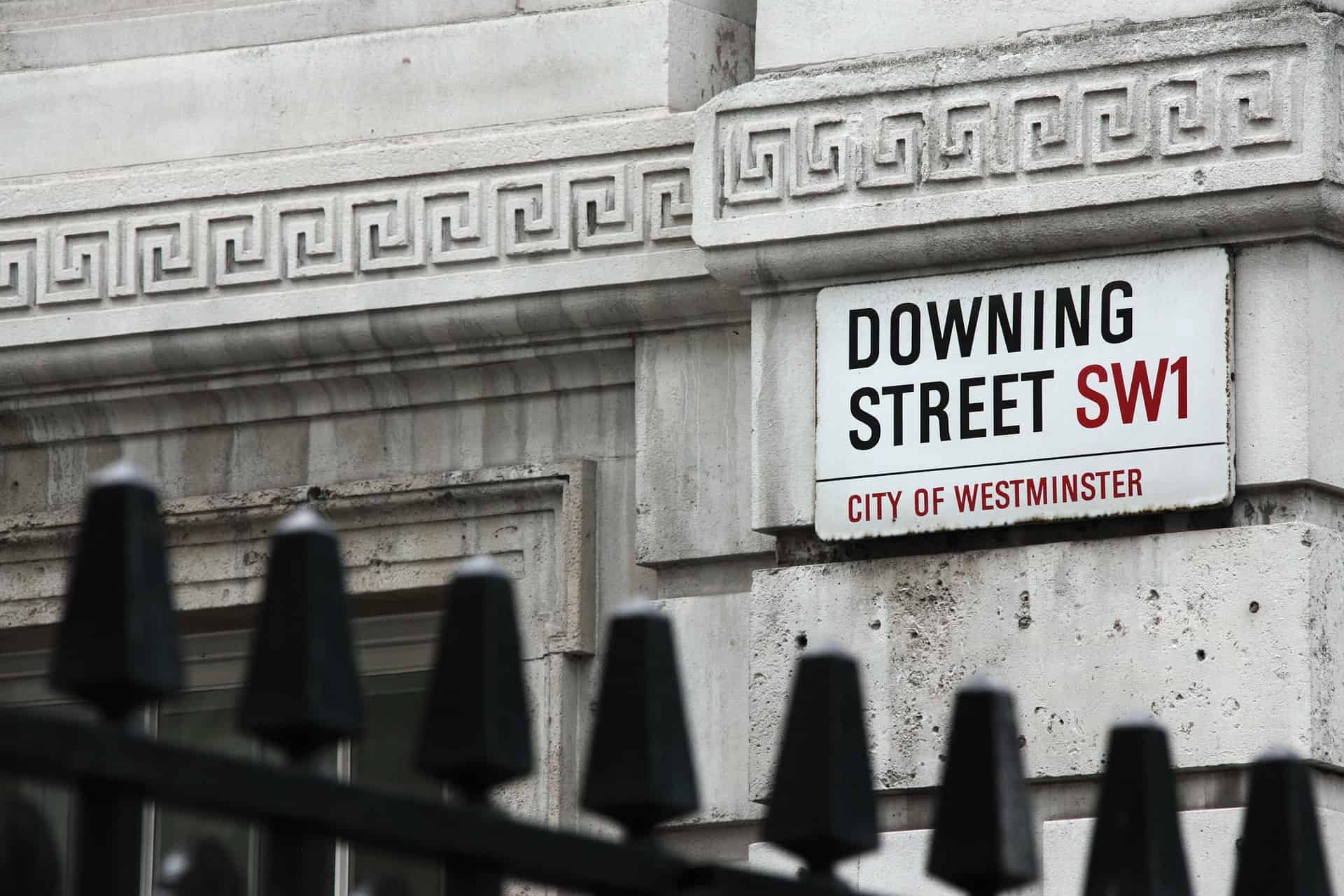The World Cup in Russia has officially begun with the host nation kicking-off in style with a 5-star and five-goal performance.
All the talk in the run-up to the World Cup has been about how prepared the nation is to host such a tournament and, most importantly, the safety of those travelling into the country to cheer on their national sides.
But with all the talk of people visiting Russia, one report published recently shone a little light on how Russians are leaving the country. Not leaving for good – we’re talking travel and tourism. Luxury tourism at that.
According to the World Tourism Organization (UNWTO), tourism FROM Russia is booming – up 13% in 2017 with huge increases expected this summer too – interestingly coinciding with the World Cup itself.
The luxury element comes in the form of the hotels that those travelling from Russia are booking, predominantly 4 and 5 stars. In fact, bookings in the luxury hotel bracket could be set to surge by 167% this summer.
Data from UNWTO is also backed-up by online activity from Russia, which uses Yandex as its predominant search engine.
Giulio Gargiullo, an expert in the Russian luxury sector, noted that a stabilising economy in Russia in recent months has led to an increase in Russians travelling into Europe in particular as online searches for 4 and 5-star accommodation abroad increases.
He said that: “…the number of searches carried out by Russians on Yandex, the main Russian search engine, for luxury hotels in the 4 or 5-star category (has grown). In the 5-star category, we witness a percentage increase in online searches of 167.4% between July 2016 and July 2017 with 337,700 online searches. An even greater increase is expected in the coming months, peaking in July 2018.
Read more: 5 potentially lucrative export markets
“Similarly, in the 4-star category, 107,607 online searches were carried out in July 2016 and 193,997 in July 2017 showing a percentage increase of 80.3%, and there is even greater growth in searches and online bookings for 2018 with the maximum peak occurring during the month of July.”
Spend from Russians whilst travelling abroad has also soared, splashing out $31bn worldwide last year. A figure that’s got luxury travel providers across the continent sitting up and paying notice. Perhaps making sure their websites have Russian translations available too.
Recognising emerging trends

If you offer a product or service that’s consumer-focused in particular, recognising emerging markets such as the luxury Russian tourism market can be critically important for the future growth of your business.
Why? Because your competitors may have yet seen the trend and you could steal a march on them, especially if you’re a smaller player in a saturated marketplace.
Read more: three things to consider when marketing abroad
Analysing search-trend data is a good starting point, but knowing how to quickly capitalise on an emerging opportunity is just as important.
If you’re looking for new potential markets to explore and exploit for your business, get in touch with us today and find out how we can help you not only recognise and analyse emerging trends but also quickly capitalise on them with an implementation strategy.
(Photo: Robert Sharp / English PEN)
An end date for a proposed ‘backstop’ plan for trade with the EU following Brexit has been published following a day of political turmoil at Number 10 after crunch meetings between David Davis and Theresa May.
The backstop plan puts in place a proposal for a temporary customs arrangement between the UK and the EU following Brexit in March next year which would see the UK match EU trade tariffs in order to avoid a hard Irish border.
Issues arose in Downing Street on Wednesday after the initial proposals did not include an end-date to such an arrangement, something which many Brexiteers within the party – including Brexit Secretary Davis – were against as it could, in theory, mean the backstop continuing indefinitely until a more permanent arrangement was met.
Given the current pace of negotiations, it’s anyone’s guess as to how long that could have taken.
And despite a hectic day on Thursday in which rumours were circulating in the press that Davis would resign if an end date was not included, the hard work is still to be done as the EU still has to agree to the proposals.
In fact, later on Thursday, EU chief negotiator Michel Barnier set his criteria on which the UK’s proposal would be judged, with one EU Brexit negotiator pointing out that ‘a backstop that is temporary is not a backstop – unless a definitive arrangement is the same as the backstop’.
Despite this, the government is confident a permanent future customs arrangement can be agreed upon and put in place by December 2021 at the latest.
Internal politics aside, what’s the big backstop issue?

Two of the biggest issues facing the UK as it leaves the many arrangements and treaties of EU membership is that of borders and trade.
The customs union which all EU states are currently members of allows tariff-free trade and minimal border checks between nations. And whilst leaving the customs union may see the UK subject to similar trading tariffs as the rest of the world doing business with EU member states (negotiations on this front could go on well into the agreed post-Brexit transition period), the most urgent issue is that of a hard border between Northern and the Republic of Ireland.
Read more: British business beyond the customs union
The EU has already created its own backstop proposal which would effectively keep Northern Ireland within the customs union, but this would essentially create a border between Northern Ireland and the rest of the UK in itself – so a counterproposal was created.
This backup counter backstop would see the entire UK aligned with the customs union, should it be required, and match EU tariffs to avoid border checks.
For Brexiteers, having no end date assigned to such agreement was not an option as it would limit the UK’s ability to forge its own independent trade policy, whilst also still residing under the jurisdiction of the European Court of Justice. A potential indefinite delay on the independence those who voted for Brexit wanted and a potentially damaging result for the country as a whole.
Read more: Business department unprepared for Brexit?
So what next on the Brexit rollercoaster? MPs will have another chance to debate the Withdrawal Bill in the Commons, followed by two increasingly vital EU summits later this month and mid-October – the latter seen as the ultimate deadline for the agreement of the divorce terms.
US tariffs on imported steel and aluminium have come into force, affecting EU, Canadian and Mexican markets.
The tariffs, which were originally announced in March this year but delayed in implementation for some US allies, officially came into effect from 1st June with US commerce secretary Wilbur Ross confirming a 25% tariff on steel and 10% on aluminium imports from the EU.
So why has the US President introduced such tariffs? Criticised by some as ‘protectionist’, Trump himself notes a national security rationale behind the call whilst also looking to uphold his presidential campaign promise to restore manufacturing jobs to decaying American steel towns across the so-called ‘rust belt’’ of The States.
In under two decades, some 90,000 American jobs have been lost in the steel and aluminium industries alone as the US made less and imported more. The trade deficit for the US stands at around one to four and the nation currently stands as the world’s biggest importer of steel.
So what will the impact be on UK and EU exporters? Whilst the effect the tariffs will have on local jobs is unclear, the amount of new tax being paid out will be substantial. UK steel exports stand around £360m to the US every year, whilst from the EU, that figure stands at £5.6bn.
And whilst the UK government has said it will ‘continue to work closely with the EU and US administration to achieve a permanent exemption’ and protect UK workers, there will no doubt be some disappointment and worried faces in Downing Street as the UK looks to etch out closer trade ties and some degree of preferential treatment from what will be an increasingly vital trading partner post-Brexit.
Will Trump’s tariffs work against the US in the long-run?

On the face of it, introducing tariffs on steel and aluminium imports seems a clever if not brash move. With such a large trade deficit in this field, the US can expect to rake in hundreds of millions in additional taxes each year before American firms start to source locally once more. The move will also bode well with Trump’s core voters. In the short-term, increasing prices of imported goods will make local products cheaper in comparison and more attractive as an alternative.
In the long-run though, things might not work out quite the way Trump would hope.
First, there’s the retaliation from hacked-off trade partners, including the EU, Canada and Mexico, who are all threatening counter-tariffs in retaliation.
This means prices for both imported and exported goods will rise, whilst local producers are likely to also increase their prices whilst still undercutting now taxed imported alternatives. Prices rise across the board, which eventually trickle down to the consumer, whilst quality dips too through lack of innovation and reduced efficiency.
Read more: British business beyond the customs union
UK Steel Director Gareth Stace suggested the President’s move has without a doubt started an international trade war.
“It is difficult to see what good can come of these tariffs. US steel consumers are already reporting price increases and supply chain disruption and with some half-billion dollars of steel exported from the UK to the US last year, UK steel producers are going to be hit hard.
“As stated time and time again, the only sustainable solution to the root cause of the issue, global overcapacity in steel production, is multilateral discussions and action through established international channels.”
However, we can’t officially call Trump’s tariffs the start of a trade war without the first retaliation, which came almost instantly through friendly neighbours Canada slapping £9.6bn in tariffs on the US.
Meanwhile, the EU is planning to re-balance the marketplace by introducing their own new import taxes on American products including orange juice, denim, motorbikes and even peanut butter.
And so it begins…
Increasing global demand has seen Japan’s exports rise for what is expected to be the 17th month running to April this year.
With final performance to be confirmed, initial data suggests that exports grew over 8% last month compared to April 2017 and a 2% increase compared to March.
Trade surplus, as a result, reached $3.66bn. However, the overall size of Japan’s economy shrank an annualised 0.6% between January and March, its first dip in nearly a decade, primarily as a result of decreasing investment and consumption.
Learn more: International trade consultancy
Takeshi Minami, chief economist at the Norinchukin Research Institute noted that: “Although exports for January-March slowed down, there is no doubt that the global economy is on a moderate recovery path and export volumes were maintained.
“Domestic demand including consumer spending likely started picking up from April, so both exports and imports are expected to recover.”
Read more: Israel dairy market grows following heightened international demand
Despite strong growth over the last year and a half, there are some roadblocks to continued success for the Japan economy in the short-term, including potential global fallout as a result of trade frictions between China and the U.S.
However, Tokyo’s CPI index is also showing signs of small growth, around 0.6% compared to last year.
An analyst at Nikko Securities said that: “Price gains in oil-related products likely contributed to the core CPI index.
“It will be some time before we see the wage increase from the annual spring wage negotiations this year supporting price rises.”
Exports of dairy products from Israel have enjoyed strong growth over the last five quarters thanks to increasing demand from Europe and North America.
An analysis released by the Israel Export Institute’s Economy Department highlighted that the nation’s export of dairy products grew by 2% in 2017 compared to the year before with exports worth $21m.
Growth has also continued into the first quarter of 2018 with further 10% growth with dairy exports bringing some $5.6m into the economy.
Whilst most Israeli export product is exported to Europe, the recent increases have been brought about through increased trade with North America.
Read more: Nigeria exports top $40bn
Last year, exports to North America grew by 51% with European exports increasing by 29%. Dairy exports also increased in Asia with 15% growth.
In monetary terms last year, the North American market offered the most value with $10.6m through export trade, followed by $6m European sales and $3m in exports to Asia.
Earlier this month we wrote about a statement from the Public Accounts Committee which noted its ‘grave concern’ about the lack of Brexit-readiness The Department for Business, Energy and Industry Strategy (BEIS) appears to showcase in the run-up to leaving the EU.
Their statement went as far as to suggest that the BEIS was apparently ‘operating in a parallel universe where urgency is an abstract concept with no bearing on the Brexit process’.
On top of that, the CBI and IoD have made public their desire for the UK to stay in the customs union and maintain close trade-links with the EU respectively.
Director of the CBI, General Carolyn Fairbairn said in a speech that: “There may come a day when the opportunity to fully set independent trade policies outweighs the value of a customs union with the EU … But that day hasn’t yet arrived.”
So why is it taking so long to agree on some sort of customs arrangement with the EU or at least a set of basic principles for a future deal?
‘Playing the long game’
As John Ashcroft writes in his Saturday Economist piece, Prime Minister Theresa May has to play the long game, partly due to the divisions within her own cabinet.
“The Prime Minister has set up two working groups to develop the options for the Customs Union deal. One team will work on the “Customs Partnership” deal, the other team will work on the “Max-Fac” proposal. The brief to “work towards a joint solution”. Some chance. Robot wars would have a better chance of resolving the conflict peacefully.
“Germany’s EU commissioner Günther Oettinger played down the chances of progress. “Madame May is weak. Boris Johnson has the same hairdo as Trump” he explained. Details of his own interpretation of the gravity trade model were omitted. “We can only hope that sensible citizens will put Madame May on the path to a clever Brexit”.”
The government are after something of a ‘clever Brexit’, but as Ashcroft points out, this is in itself a contradiction.
Read more: Business Department unprepared for Brexit?
Sure, there’s unlikely to be a cliff-edge Brexit in which Britain takes a step into the complete unknown. But there will be some losers, and it could just be that the majority (51.9% in fact) underestimated the impact leaving the likes of the single market will have on the UK economy and its businesses.
As Fairbairn concluded whilst noting alternative trade arrangements around the world, things are likely to get more difficult for those firms that are trading overseas, whatever sort of Brexit is achieved.
“Currently, to trade with the EU, many U.K. businesses need only complete a simple form. But with a Canada-style agreement U.K. firms would face customs declarations, which means filling out a 12-page form for each batch of goods sent to customers,” Fairbairn will say, adding that the Canada deal is “patchy” on services trade.
“Put simply, a Canada deal is an ocean away from what we need.”
What all this means for British businesses
It could mean everything, or it could mean nothing at all. We just don’t know yet. We almost have to wait and see, but that doesn’t mean companies shouldn’t start planning regardless.
As just one example, many EU based SMEs actually prefer to make large purchases from EU members outside of their country as there is no VAT on the invoice, as compared to a local company that must charge the tax.
This has a real benefit for their cash flow. Ok, you can claim it back, but in these post-financial crisis times some governments are taking up to 12 months to make the refund! This benefit will most likely disappear and with it some of your export business.
That is unless, as noted above, you start planning now. Read more on business after Brexit here.
A report published last month has cast serious doubt on how Brexit-ready a key government body is.
According to MPs from the Public Accounts Committee, The Department for Business, Energy and Industrial Strategy (BEIS) has made ‘virtually no attempt’ to prioritise ahead of Britain leaving the EU as it moves from a state of planning to implementation.
According to the PAC, members are gravely concerned that the BEIS is not as prepared for Brexit as it should be.
Meg Hillier, chair of the committee said that: “We have grave concerns about this apparent complacency, compounded by the lack of transparency on the department’s progress with what in some cases will be critical projects.
“Sensitivities around negotiations with the EU must not be used as an excuse to keep taxpayers and Parliament in the dark. We urge the government to provide us with a swift update on the issues raised in our report.”
Read more: IoD reiterates importance of post-Brexit trading with Europe
She continued: “The Department for Business, Energy & Industrial Strategy appears to be operating in a parallel universe where urgency is an abstract concept with no bearing on the Brexit process.
“The department is responsible for around a fifth of the work streams the government must complete as the UK leaves the EU. It is an extremely important, challenging and time-sensitive workload.
“Yet the department told us it had not re-prioritised its overall programme of work, had not begun procurement for around a dozen essential digital systems and could not provide vital information about its workforce.”
In the report published by the PAC, it suggested that the Cabinet Office and Department for Exiting the EU needs to carry out an immediate review of planned processes and a draft legislative timeline to navigate Britain’s exit for the EU.
Read more: 5 potentially lucrative export markets
However, a spokesman for the BEIS said that extra investment and staff recruitment has already begun to help with the undoubted challenges ahead.
“Along with the whole of government, BEIS is focused on getting the best deal for the UK and ensuring a smooth transition for businesses, consumers and workers.
“Since this report was written, BEIS has received £185m of extra funding to help deliver a successful Brexit by employing an increased number of staff on our Europe work, identifying the most pressing legislative challenges and remaining ahead of schedule by recruiting high-calibre staff to ensure we prepare thoroughly and effect.”
Annual Nigeria exports goods reached $40bn in value according to the Nigerian Export Promotion Council (NEPC).
That’s the figure of informally traded goods though, calculated by the International Trade Centre in Geneva, with the Nigerian Association of Chambers of Commerce, Industry Mines and Agriculture (NACCIMA) posting the value of trade at $8bn.
CEO of the NEPC, Segun Awolowo, said that: “We want to work with NACCIMA to formalise this informal trade. We have to work with your chambers in all the states of the federation. We have to give these small business owners incentives that will make it better for them to do business.
“We have 11 non-oil sectors where we can earn foreign exchange and one of them is the petrochemical sector, which is a $150bn global market,” he added.
“Nigeria is not playing in this market because it is importing, but we are a petrol economy and that is where the paradox lies.”
An Export Development Fund has been established in Nigeria to support small business in particular with a pre-shipment incentive to help startups grow and export.
Read more: 5 potentially lucrative export markets
Nigeria has enjoyed a GDP boom over the last decade with strong growth forecasts into 2018. Responsible for 40% all of imports into Western Africa, there are real opportunities for new businesses to do trade in the country, in particular within automotive, marine, financial and health-care sectors.
At some point during exporting and doing business overseas, you’re going to have to face and overcome issues that arise from managing multiple currencies whilst selling abroad.
The good news is that, unlike market-leading conglomerates around the world, you needn’t start hiring Forex traders left, right and centre.
Here are three ways in which you can protect your business (as best as possible) from shifting currencies:
One: Try and do business in your local currency
There are pros and cons to this one and they weigh pretty evenly. Particularly if you’re a small business making its first foray into international markets, the simplest solution to managing multiple currencies whilst selling abroad may seem to be charging customers in your local currency, thus passing the issue of market deviations onto them.
However, this may lose you your competitive edge in the market by requiring this from clients, especially if the bidding process was against numerous companies, in particular against potential local suppliers.
Two: Lock-in exchange rates in advance
A number of SMEs are unlikely to have cash reserves and a healthy enough cash flow, in general, to swallow any negative movements on the foreign exchange.
One way around this is to look at purchasing a forward contract from a specialist or business bank that locks in the exchange rate for a certain period of time – long enough to complete particular purchases and orders.
Read more: IoD reiterates the importance of post-Brexit trading with Europe
Such services don’t come free and a commission will have to be paid at a level set by the forward contract provider, but it could be worth it for peace of mind whilst your exporting endeavours and business grows.
And those commissions can come cheap if you shop around. AFEX offer a forward contract with a 1% commission which, depending on the size of the contract in question, may be a safe and affordable bet.
Three: Don’t try to play the market
You may be on a high from recent business growth and feeling like you can tackle any potential obstacle that the path to business growth places in your way. Some business owners may get ‘casino fever’ and see an opportunity to make additional profit on top of the secured contract by playing the market by buying in one currency and selling in another.
However, there’s a reason the risk warnings on Forex trading websites are so long – it’s a risky game, especially when your business’ future is on the line.
Unless you have prior experience in Forex trading or are a legitimate market expert, playing the market is likely too risky. It’s also likely to prove a waste of your time when you could be focusing on securing the next contract or moving into another international market.
Read more: 5 potentially lucrative export markets
If you’re new to exporting or have just started selling abroad, some expert help along the way could help you save thousands and a lot of time by making the right decision every step of the way. Read more about how support services, ranging from export paperwork to order financing can help your growing business.
The Institute of Directors has reiterated the importance of agreeing trade deals within the EU following Brexit, ahead of focusing on forging agreements further afield.
The warning was issued to the government by the IoD as international trade secretary, Liam Fox, looks to strike more trade deals with the rest of the world – a key benefit for Brexiteers in leaving the European Union.
With over 30,000 members, the IoD polled almost 800 company bosses and reported that the EU has provided stronger growth for exporting British firms than both North America and Asia since 2016, suggesting to ministers that trade needs to be boosted both with European neighbours and worldwide to achieve ambitions of creating a ‘global Britain’.
The research also showed that more British companies are exporting goods, up 7% over the last five years, despite the referendum result and invoking of Article 50.
Allie Renison of the IoD said: “Going global is as much about opportunities in Europe as it is further afield, and this should be reflected in how the government shapes post-Brexit Britain”, whilst also noting that ministers must ‘get real about trade, and fast’.
Despite business concerns over leaving the EU and single market, in particular, many company heads are optimistic over future trade prospects and international sales opportunities. One such study, carried out by HSBC, found that a third of firms surveyed predicted the outcome of Brexit would be positive for British business.
Head of commercial banking at HSBC, Amanda Murphy, suggested that firms are undeterred by future post-EU uncertainty and businesses ‘clearly aim to capitalise on the cheaper pound and rising demand in key markets’ to boost international sales.
Business beginning to shift focus to issues at home
And despite many questions still awaiting answers when it comes to business and Brexit, it appears UK forms have warmed enough to the prospect that attentions are flickering back to matters closer to home.
A survey by Deloitte which surveyed 106 company CFOs, including 25 of the FTSE 100, found that sluggish economic growth was now a bigger concern.
The CFOs assigned scored Brexit as a 56/100 risk towards their business, whilst weak demand at home scored 57/100.
Read more: 5 potentially lucrative export markets
Eroding spending power of consumers at home due to an inflation spike, plus market concern as household names including Toys R Us and Maplin entered administration, are two of the key contributors, as well as weak productivity growth and potential labour shortages.
However, the economy has shown signs of recovery in Q1 2018 with wage growth, including through the National Minimum and Living Wage, whilst inflation eases.
In fact, the same survey found that one-fifth of companies felt more optimistic about future prospects than they did in Q4 2017.









